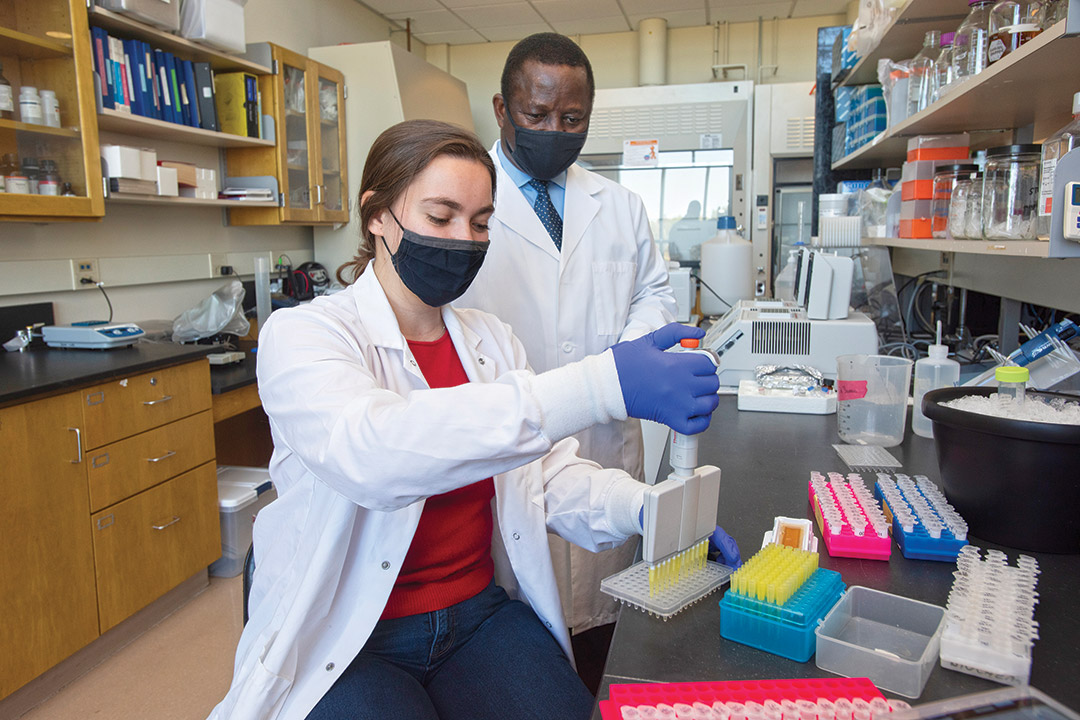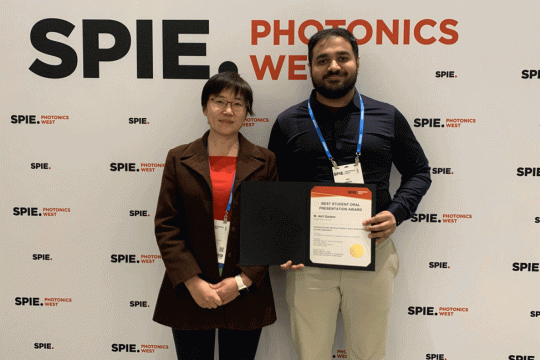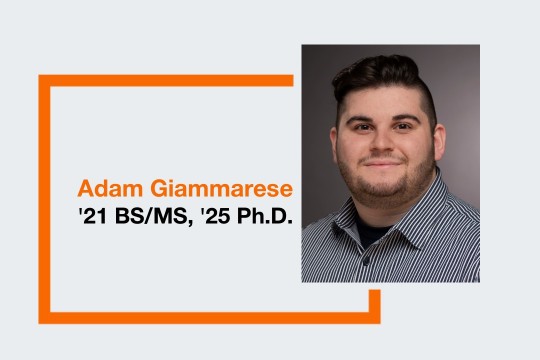Undergraduate research on the rise at RIT
A. Sue Weisler
Marissa Schroeter works with one of her mentors, Professor Bolaji Thomas. With the help of strong mentors, undergraduate researchers such as Schroeter cultivate critical thinking, collaboration, and problem-solving skills.
Marissa Schroeter chose RIT for its science expertise and the chance to join a research lab in her first semester. Now Schroeter, a fourth-year biomedical sciences and biotechnology and molecular sciences double major, splits her time as a student researcher in labs located in the College of Health Sciences and Technology and in the College of Science.
Her mentors, André Hudson, head of the Thomas H. Gosnell School of Life Sciences, and Bolaji Thomas, professor of biomedical sciences, have helped her grow as a young scientist.
“I got a lot of my hands-on lab skills from Dr. Hudson and from working in his lab. He’s always in the lab and asking what are you doing today and if you have any questions,” Schroeter said. “Dr. Thomas has given me a unique perspective on where my career is headed. He challenges me to think of where I am going to be in the future rather than where I am right now. He is really great at helping me move myself forward.”
With the help of strong mentors, undergraduate researchers such as Schroeter cultivate critical thinking, collaboration, and problem-solving skills. Conducting research can help students synthesize concepts they learned in their classes to create something new.
Many RIT undergraduates conduct independent research on the level normally experienced in graduate school, and that gives them an edge over peers from other universities, according to Ryne Raffaelle, RIT vice president for research and associate provost.
And the experience these students gain in working alongside graduate students, postdoctoral fellows, and faculty mentors is an important part of their education.
Research adds value to an undergraduate education and denotes a healthy university. RIT’s growth as a research university is the result of increased federal grant funding, which, in turn, creates research opportunities for students, Raffaelle said.
“A cornerstone of the 2025 Strategic Plan, Greatness Through Difference, is the concept of being a student-centered research university,” Raffaelle said. “One important metric to us as a university is how many of our students present at our annual undergraduate research symposium. The good news is that this number continues to grow steadily.”
The College of Health Sciences and Technology supported Schroeter’s research with a Summer Undergraduate Research Fellowship that enabled her to work collaboratively on a project looking for new antibiotic compounds produced by bacteria from Lake Ontario.
She presented her findings at the 2020-2021 online Undergraduate Research Symposium, joining peers from the Henrietta campus, RIT’s international colleges in Dubai and Croatia, and students participating in the Research Experience for Undergraduates hosted at RIT. Schroeter
also presented new data at the Annual Biomedical Research Conference for Minority Students in November.
Schroeter relies on her mentors’ input and professional advice as she applies to doctorate and medical/doctorate programs. Her goal is to become a physician-scientist.
Another sign that undergraduate research is on the rise at RIT is the Undergraduate Research Scholars Award, presented for the first time at the 2021 commencement ceremony. RIT recognized 40 members of the inaugural class of Undergraduate Research Scholars. The award highlighted their accomplishments and reinforced the importance bestowed
to undergraduate research at RIT.








